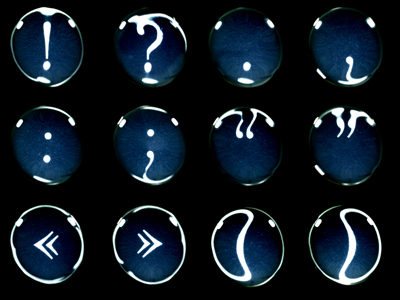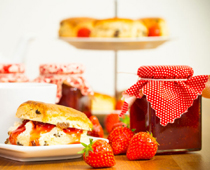
Ask the AI Tutor
Need help with Commas 02? Ask our AI Tutor!
AI Tutor - Lucy
Connecting with Tutor...
Please wait while we establish connection

Although small, commas can be very tricky!
Commas 02
Commas can change how sentences sound and what they mean. This KS2 English quiz helps pupils master tricky comma rules with confidence.
To see a larger image, click on the picture.
1 .
Read the sentence and choose the answer which has been correctly punctuated.
Greta the baker makes the best cakes I've ever eaten.
Greta the baker makes the best cakes I've ever eaten.
Greta the baker, makes the best cakes I've ever eaten.
Greta, the baker, makes the best cakes I've ever eaten.
Greta, the baker makes the best cakes I've ever eaten.
Greta the baker makes the best cakes, I've ever eaten.
'the baker' is extra information about Greta and needs to be inside two commas.
2 .
Read the sentence and choose the answer which has been correctly punctuated.
'Georgia could you please find my coat?'
'Georgia could you please find my coat?'
'Georgia could you, please, find my coat?'
'Georgia could you please, find my coat?'
'Georgia, could you, please find my coat?'
'Georgia, could you please find my coat?'
The name of the person being addressed should be set off with one comma, if the name comes at the beginning or end of the sentence, or a pair of commas, if the name comes in the middle of the sentence.
3 .
Read the sentence and choose the answer which has been correctly punctuated.
'Come over for tea' the new neighbour said.
'Come over for tea' the new neighbour said.
'Come over, for tea,' the new neighbour said.
'Come, over for tea', the new neighbour said.
'Come over for tea,' the new neighbour said.
'Come over for tea' the new, neighbour said.
For more practise using commas with dialogue, try the direct speech quiz.
4 .
Read the sentence and choose the answer which has been correctly punctuated.
The cup of tea which I had completely forgotten to drink had gone cold.
The cup of tea which I had completely forgotten to drink had gone cold.
The cup, of tea, which I had completely forgotten to drink had gone cold.
The cup of tea which I had completely forgotten to drink, had gone cold.
The cup of tea, which I had completely forgotten to drink, had gone cold.
The cup of tea which I had completely, forgotten to drink had gone cold.
The clause, 'which I had completely forgotten to drink', adds extra information about the cup of tea and should be set off by a pair of commas.
5 .
Read the sentence and choose the answer which has been correctly punctuated.
'Are you hurt Brendan or are you O.K.?'
'Are you hurt Brendan or are you O.K.?'
'Are, you hurt, Brendan or are you, O.K.?'
'Are you hurt Brendan, or are you O.K.?'
'Are you hurt, Brendan, or are you O.K.?'
'Are you hurt, Brendan or are you O.K.?'
Because the name is in the middle of the sentence, it needs two commas.
6 .
Read the sentence and choose the answer which has been correctly punctuated.
The team which had not been training as much as usual still won the match.
The team which had not been training as much as usual still won the match.
The team which had not been training, as much as usual, still won the match.
The team, which had not been training as much as usual still won the match.
The team which had not been training as much as usual, still won the match.
The team, which had not been training as much as usual, still won the match.
The sentence requires two commas around the clause.
7 .
Read the sentence and choose the answer which has been correctly punctuated.
'Just leave them on the chair and go Alan.'
'Just leave them on the chair and go Alan.'
'Just leave them on the chair and go, Alan.'
'Just leave them on the chair, and go Alan.'
'Just, leave them on the chair, and go Alan.'
'Just leave, them on the chair, and go, Alan.'
This sentence requires just one comma before the name.
8 .
Read the sentence and choose the answer which has been correctly punctuated.
The car which had begun making strange noises came to a sudden halt.
The car which had begun making strange noises came to a sudden halt.
The car, which had been making strange noises came to a sudden halt.
The car which had been making strange noises, came to a sudden halt.
The car, which had been making strange noises, came to a sudden halt.
The car which had been making strange noises came, to a, sudden halt.
If we take out the clause, 'The car came to a sudden halt' still makes sense.
9 .
Read the sentence and choose the answer which has been correctly punctuated.
The headteacher who was also new to the school came in to greet the new reception class.
The headteacher who was also new to the school came in to greet the new reception class.
The headteacher, who was also new to the school, came in to greet the new reception class.
The headteacher, who was also new to the school came in to greet the new reception class.
The headteacher who was also, new to the school, came in to greet the new reception class.
The headteacher who was also new to the school, came in to greet the new reception class.
The clause, 'who was also new to the school', adds extra information about the headteacher and should be set off by a pair of commas. 'The headteacher came in to greet the new reception class' is a complete sentence without the extra clause.
10 .
Read the sentence and choose the answer which has been correctly punctuated.
After break time we will be doing maths which is our favourite subject.
After break time we will be doing maths which is our favourite subject.
After break time we will be doing maths which, is our, favourite subject.
After break time, we will be doing maths, which is our favourite subject.
After, break time, we will be doing maths, which is our favourite subject.
After break time we will be doing, maths which is our favourite subject.
This sentence needs a comma after the sentence opener, 'After break time'. It also needs a comma to set off the extra information, 'which is my favourite subject'.
**Unlimited Quizzes Await You! 🚀**
Hey there, quiz champ! 🌟 You've already tackled today's free questions.
Ready for more?
Ready for more?
🔓 Unlock UNLIMITED Quizzes and challenge yourself every day. But that's
not all...
not all...
🔥 As a Subscriber you can join our thrilling "Daily Streak" against other
quizzers. Try to win a coveted spot on our Hall of Fame Page.
quizzers. Try to win a coveted spot on our Hall of Fame Page.
Don't miss out! Join us now and keep the fun rolling. 🎉
**Unlimited Quizzes Await You! 🚀**
Hey there, quiz champ! 🌟 You've already tackled today's free questions. Ready for more?
🔓 Unlock UNLIMITED Quizzes and challenge yourself every day. But that's not all...
🔥 As a Subscriber you can join our thrilling "Daily Streak" against other quizzers. Try to win a coveted spot on our Hall of Fame Page.
Don't miss out! Join us now and keep the fun rolling. 🎉
















